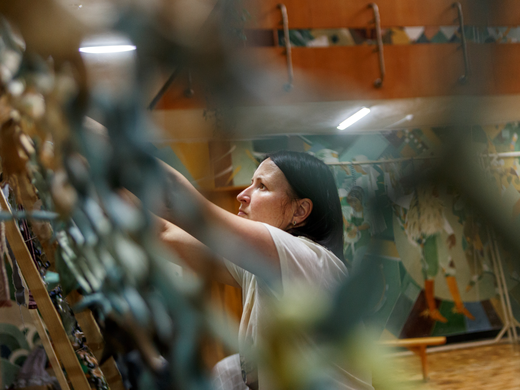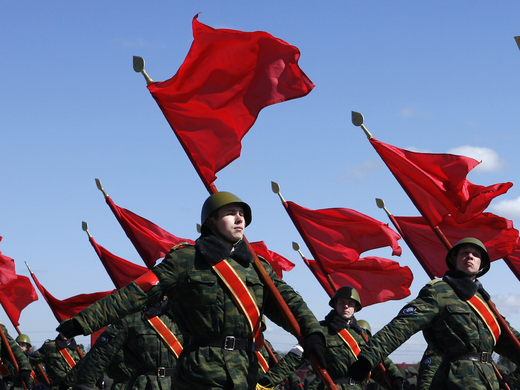Today marks the fourth Nuclear Security Summit, a forum for leaders to engage with each other and reinforce our commitment at the highest levels to securing nuclear materials. This past year, the security and stability of the international community was threatened by the emergence of the Islamic State and mounting tensions between North and South Korea. To learn more about how the nuclear security community will react to the challenges faced in 2015 and those looming in the year to come, we speak to CIGI Research Associate Simon Palamar.
CIGI: Why does the Nuclear Security Summit (NSS) matter as a forum to discuss and promote the improvement of nuclear security culture?
Simon Palamar: The NSS does at least two things. First, when the United States hosted the inaugural NSS in 2010, it sent a strong signal to many governments that the Obama administration was taking nuclear threat reduction very seriously, and that the White House wanted to make some progress on some of these issues (securing fissile materials in particular). When the US president pays attention to an issue, it tends to get the attention of other governments. So in that regard, the 2010 NSS was important in that it conveyed the level of concern the United States had, and their willingness to lead on these issues. This created a focal point for cooperation.
The second important thing the NSS does is it keeps these policy issues on the front burner of various nuclear regulators and other government organizations that might play a role in implementing solutions. If countries have signed on to a NSS communique (which is purely a political document, and non-binding), they can now expect that other governments are going to ask for progress reports, and to see evidence that they are living up to their commitments. Having a biannual NSS gives governments an incentive to hit their targets and implement promised changes, lest they be the laggards at the NSS.
CIGI: What are some of the most vulnerable areas when it comes to nuclear security and what kind of strategies has this forum applied to meeting these challenges?
Palamar: While there are lots, one that merits mention is the use of highly enriched uranium (HEU) in research reactors. HEU, if enriched to a certain degree, can be used to make a nuclear weapon. Older research reactor designs often relied on HEU fuel, and certain civilian applications — such as making radioisotopes for medical treatments — has historically used HEU. So the challenge is that you had a large number of research reactors around the world (in the order of around 700 I believe, many of which were designed to use HEU fuel) and isotope production reactors that used HEU. So the United States, for some time now, has been working on agreements to get that HEU secured — taken out of reactors, stored in safe locations, or recycled and ‘down-blended’ into proliferation-resistant products. This also involves efforts to identify technical solutions, such as methods to produce medical isotopes without HEU, or modifications to research reactors so they can use more proliferation-resistant fuel.
Now, the United States has made this a policy priority before launching the NSS in 2010. But, the NSS has offered a useful forum for getting regulators together to discuss efforts to round up this HEU fuel. The NSS has also been a forum where countries have announced major policy changes on this issue (such as when Ukraine announced their intent to phase out HEU at the 2010 NSS). The NSS communiques have also been used to keep the HEU issue on the agenda and in the spotlight.
CIGI: On Thursday, President Obama will have to speak to world leaders about the successes that have been made in preventing terrorists from obtaining nuclear materials and weapons. What does this task take given the transnational reach of the Islamic State as best evidenced by the recent attacks in Brussels?
Palamar: There are, in my mind, two major components to any effort to prevent terror groups from acquiring nuclear materials and expertise. The first is, as I mentioned earlier, securing weapon-usable materials, and radioactive materials that might be used in a conventional weapon — also called a radiological bomb, where radioactive materials are placed in a conventional explosive. When the bomb detonates, the radioactive materials are spread by the explosive. This means converting facilities that use particularly sensitive materials to use less sensitive materials, and ensuring that any sensitive materials are properly secured. This means building and funding storage sites, but also making sure that personnel at active sites (such as reactor or lab) are well vetted and well paid. In some countries, this means regulators will need outside financial and technical assistance (such as in the case of the Vinca reactor in Belgrade, Serbia, where Serbian authorities needed the United States, Russia and the International Atomic Energy Agency to help safely remove and transfer a significant quantity of weapon-usable material to a secure storage site in Russia).
The second major component is the human element. The people who work with these materials need to be well-vetted, but they also need to be adequately and fairly compensated. After the fall of the Soviet Union, the United States recognized that there was a large cadre of former Soviet engineers and physicists facing the prospect of unemployment. There was a risk that many of these people, out of pure economic necessity, would sell their skills to the highest bidder. Making sure that scientists and engineers in nuclear sectors that are facing economic challenges have good, remunerative work reduces the temptation of working with the black market. Again, this often requires countries to offer financial assistance to one another.
CIGI: What does a national nuclear security policy that takes new (and non-state) threats seriously look like?
Palamar: It needs to be flexible and adaptive. A national nuclear security policy that is, for example, exclusively designed to keep radioactive materials out of the hands of ISIS, or al-Qaeda, or al-Nusra, or their sympathisers, risks creating a policy environment that encourages tunnel vision, and where other potential threat groups get missed, leaving the nuclear science establishment vulnerable. Instead of identifying individuals or organizations that we do not want to acquire these materials and expertise, and focussing on them, any comprehensive security policy needs to focus on threat behaviours, not threatening actors.
CIGI: Has the international community made progress when it comes to “nuclear security”? What does the learning curve look like from the last summit in the Netherlands to where we sit today?
Palamar: Unfortunately, probably not. Russia, of course, will not be attending the 2016 NSS. While not attending an NSS is, in and of itself, not fatal to efforts to develop a more effective global effort to secure nuclear materials, any breakdown in communications between Russia and the United States on this issue is a bad thing (for the record, I think that the breakdown is purely a casualty of the split between the two countries over Ukraine and, to a much lesser extent, Syria). Russia has also been arguing that the United States is essentially trying to centralize all global nuclear security efforts in and around Washington to the detriment of Moscow and others.
Now there is often a lot of merit in decentralizing policy efforts. Unfortunately, nuclear security might not be one of those cases. Sharing information about the location, status, etc. of nuclear materials and facilities that use them is crucial since the sorts of criminal and terrorist threats that the NSS is intended to counter are increasingly spread out — they cross national borders, they have international goals and aspirations. Preventing criminal, terrorist and militant organizations from acquiring fissile and radiological materials is probably easier when one state or organization takes on the task of being a central clearing house for information, and it is even better if that state takes on a leadership role, cajoling and encouraging others to share information and make policy reforms. The United States, for better or worse, has taken on that role. Russia’s waning participation does not bode well, since it increases the risk of a failure to share important or timely information between Moscow and Washington.


